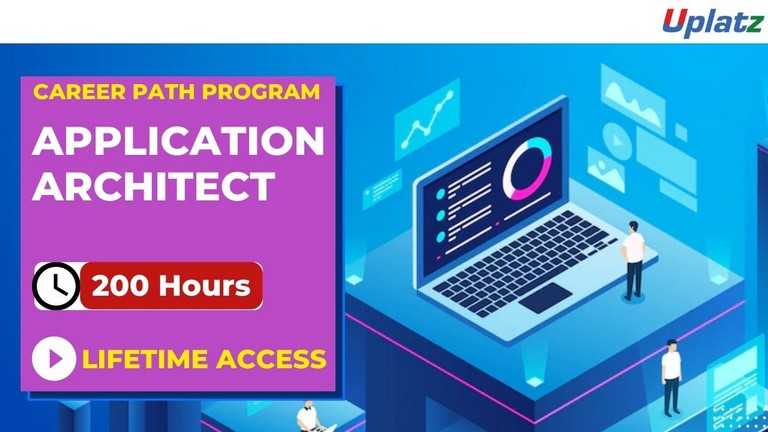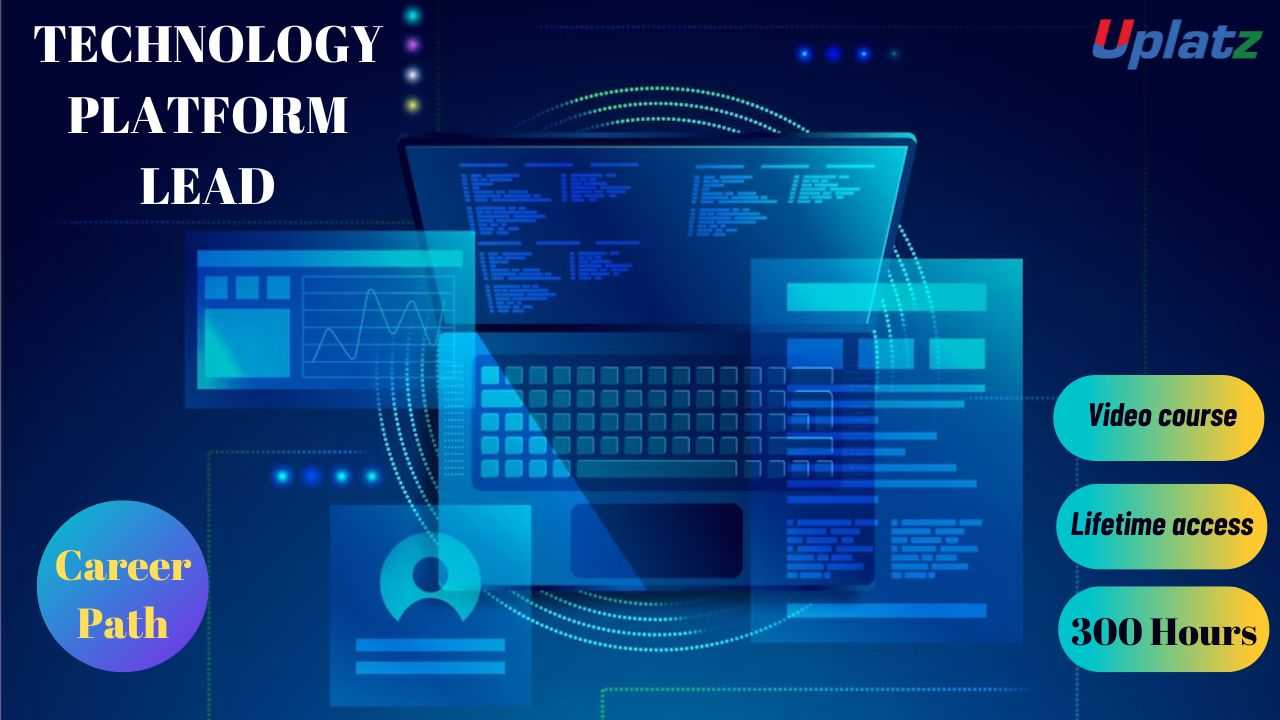Career Path - Infrastructure Engineer
Design, deploy, and manage enterprise-grade IT systems with end-to-end infrastructure engineering skills for hybrid and cloud environmentsPreview Career Path - Infrastructure Engineer course
Price Match Guarantee Full Lifetime Access Access on any Device Technical Support Secure Checkout Course Completion Certificate 91% Started a new career
BUY THIS COURSE (
91% Started a new career
BUY THIS COURSE (GBP 32 GBP 99 )-
 87% Got a pay increase and promotion
87% Got a pay increase and promotion
Students also bought -
-

- Career Path - IT Support Engineer
- 200 Hours
- GBP 32
- 757 Learners
-

- Career Path - Application Architect
- 200 Hours
- GBP 32
- 832 Learners
-

- Career Path - Technology Platform Lead
- 200 Hours
- GBP 32
- 2136 Learners

Career Path – Infrastructure Engineer (Self-Paced Online Course)
The Career Path – Infrastructure Engineer self-paced online course is your strategic launchpad into one of the most essential roles in today’s technology-driven organizations. Tailored for aspiring IT professionals and current practitioners looking to upskill, this in-depth course offers a comprehensive foundation in designing, implementing, and managing enterprise-grade infrastructure systems. Whether you're looking to start your career in IT or elevate your current role, this program equips you with the technical proficiency and real-world experience needed to thrive as an Infrastructure Engineer.
As organizations across all industries embrace digital transformation, the role of an Infrastructure Engineer becomes increasingly pivotal. These professionals are responsible for building and maintaining the systems that power business operations—from servers and networks to virtualization layers and cloud infrastructure. The modern Infrastructure Engineer must understand both legacy systems and the latest technological advancements to ensure environments are secure, scalable, efficient, and always available.
This self-paced course is designed with flexibility in mind, allowing learners to access content anytime, anywhere. It combines high-quality pre-recorded video lectures with guided lab exercises, enabling you to learn theoretical concepts and immediately apply them in practical scenarios. Each module is developed and delivered by seasoned infrastructure professionals with years of experience in IT operations, system engineering, cloud computing, and DevOps.
What This Course Offers
The course provides a structured and detailed learning path covering all critical areas of modern infrastructure engineering. You will explore the core pillars of IT infrastructure, including system administration, server deployment, virtualization technologies, networking fundamentals, storage management, and cloud computing. In addition, you will delve into automation, Infrastructure as Code (IaC), monitoring, and incident response strategies—all of which are vital in managing today's dynamic IT ecosystems.
The curriculum places a strong emphasis on:
- Practical Skills Development: Every module includes hands-on labs or scenarios that mirror real-world challenges, enabling you to build tangible skills using industry-standard tools.
- Hybrid Infrastructure Proficiency: Learn how to operate effectively in hybrid environments where on-premise and cloud systems coexist.
- Security and Compliance: Understand how to implement secure architectures and ensure compliance with industry standards and policies.
- Cloud Platforms and Tools: Explore the workings of major cloud providers such as AWS, Azure, and Google Cloud Platform, along with automation tools like Ansible, PowerShell, and Terraform.
You’ll also learn how to troubleshoot system issues, optimize performance, manage backups and disaster recovery processes, and automate repetitive tasks to reduce human error and improve reliability.
Who Should Take This Course
This course is ideal for:
- Aspiring IT professionals seeking a structured entry point into infrastructure roles.
- System Administrators looking to expand their capabilities into cloud and hybrid environments.
- Network and Support Engineers aiming to transition into more comprehensive infrastructure responsibilities.
- Students and recent graduates in computer science, IT, or related fields looking for practical skills and career readiness.
- Career changers with a technical aptitude interested in breaking into the IT infrastructure domain.
Whether you’re starting fresh or seeking to validate and expand existing skills, this course will give you the confidence and capability to take on Infrastructure Engineer roles in small, medium, or large enterprise settings.
How to Use This Course
To get the most out of this self-paced online course, consider adopting a structured learning approach:
- Set Clear Goals: Before diving into the material, identify what you want to achieve—whether it’s landing your first IT job, preparing for a certification, or building your skills in cloud infrastructure. Having clear goals will keep you motivated and focused.
- Commit to a Routine: Allocate dedicated time each day or week for learning. Even an hour of consistent study can lead to significant progress over time. The self-paced format gives you the freedom to learn when it suits you—make that flexibility work to your advantage.
- Follow the Learning Path: The course is organized sequentially to build your knowledge step by step. Start from the beginning, even if you already have some experience, to ensure a strong foundation and avoid missing key concepts.
- Engage with Hands-On Labs: Make the most of the guided labs provided in the course. These labs are not just exercises—they are opportunities to simulate real-world tasks and build practical experience. Set up a test environment or use cloud free tiers to follow along.
- Take Notes and Summarize Concepts: While watching video lessons, jot down important points in your own words. Summarizing complex ideas helps reinforce your understanding and provides a handy resource for future reference.
- Pause, Practice, Repeat: If a concept is complex or unfamiliar, don’t hesitate to pause the video, look up additional resources, or rewatch sections. This is the advantage of on-demand learning—you can go at your own pace.
- Apply Skills in Real or Simulated Environments: If you’re currently working in IT, try applying new skills in your workplace (with the appropriate permissions). If not, simulate scenarios in virtual labs or home test environments to reinforce learning.
- Stay Curious and Supplement Learning: Use the course as a foundation and explore additional material such as technical blogs, forums, and vendor documentation. Join online communities and follow thought leaders in infrastructure engineering to stay current.
- Build a Portfolio: Document your lab work, projects, and key learnings. Creating a portfolio of your skills and achievements not only reinforces your knowledge but also serves as proof of competence when applying for jobs.
- Evaluate Progress and Plan Next Steps: After completing major sections or the full course, take time to reflect on your progress. Assess your strengths and identify areas for improvement. This can help guide your next learning goals—such as certification preparation or a deeper dive into a specific technology.
The Career Path – Infrastructure Engineer course is your comprehensive guide to becoming a confident and capable IT professional. With its mix of expert instruction, real-world labs, and flexible learning options, this course provides the skills, insights, and experience you need to design, manage, and optimize modern IT infrastructure. It not only prepares you for the technical demands of the role but also empowers you to grow your career in a field that continues to be a backbone of the digital economy.
Take charge of your learning journey today and build the foundation for a thriving career as an Infrastructure Engineer.
Course/Topic - Course access through Google Drive
-
Google Drive
-
Google Drive
By the end of this course, learners will be able to:
- Understand the core responsibilities of Infrastructure Engineers in enterprise IT
- Set up and manage on-premise and cloud infrastructure systems
- Work with virtualization platforms, networking, and storage
- Configure, monitor, and maintain secure, high-availability systems
- Automate infrastructure using tools like Terraform and Ansible
- Support cloud-native and hybrid infrastructure environments
- Collaborate across DevOps, security, and operations teams
- Prepare for industry certifications and long-term career growth
Syllabus:
- Introduction to Infrastructure Engineering
- Role and scope of Infrastructure Engineers
- Core infrastructure components
- System Administration and Virtualization
- Linux and Windows server setup
- Hypervisors: VMware, Hyper-V, and KVM
- Networking Fundamentals
- TCP/IP, DNS, DHCP, VLANs, and routing
- Network tools and troubleshooting
- Cloud Infrastructure & Services
- AWS, Azure, GCP fundamentals
- Cloud provisioning and virtual networks
- Storage and Backup Solutions
- SAN, NAS, RAID configuration
- Backup strategies and disaster recovery
- Infrastructure as Code (IaC)
- Introduction to Terraform, Ansible
- Automating deployment and configuration
- Monitoring & Logging
- System and application monitoring tools
- Alerting and log analysis
- Security and Compliance
- Firewall configuration, identity access management
- Compliance: GDPR, HIPAA, ISO 27001
- DevOps Integration and Automation
- CI/CD principles
- Scripting with Bash and PowerShell
- Career Planning & Certification Prep
- Interview tips, resume guidance
- Certification roadmaps and senior career paths
Upon successful completion, learners will receive a Course Completion Certificate from Uplatz, validating their skills in infrastructure setup, configuration, security, and management across cloud and on-prem systems.
This Uplatz certification highlights your readiness to take on real-world infrastructure roles and lays the foundation for advanced certifications such as:
- CompTIA Network+/Server+
- Microsoft Certified: Azure Administrator Associate
- AWS Certified SysOps Administrator
- Google Associate Cloud Engineer
- HashiCorp Certified: Terraform Associate
With this certificate, you’ll be well-positioned for promotions, specialized roles, or entry into enterprise-grade infrastructure teams.
Infrastructure Engineers play a foundational role in IT, with strong job demand across industries due to increased cloud adoption, system complexity, and the need for reliable digital services.
Career Opportunities Include:
- Infrastructure Engineer
- System Administrator
- Network Engineer
- Cloud Engineer
- Site Reliability Engineer (SRE)
- DevOps Engineer
- IT Operations Specialist
Industries Hiring:
Finance, healthcare, e-commerce, telecommunications, SaaS companies, public sector, manufacturing, and global consulting firms.
Career Growth Paths:
- Senior Infrastructure Engineer
- Infrastructure Architect
- IT Operations Manager
- Cloud Solutions Architect
- Chief Information Officer (CIO) or Chief Technology Officer (CTO)
Infrastructure Engineers enjoy job stability, excellent salaries, and pathways to executive-level positions. Their transferable skills make them essential to global IT and operations teams.
1. What is the role of an Infrastructure Engineer?
They are responsible for designing, maintaining, and optimizing IT systems including servers, networks, and cloud environments.
2. What is the difference between virtualization and containerization?
Virtualization uses hypervisors to run multiple OSes; containerization runs isolated applications on a shared OS kernel (e.g., Docker).
3. What is Infrastructure as Code (IaC)?
IaC is a method to automate and manage infrastructure using code and tools like Terraform and Ansible.
4. How do you secure a networked system?
By implementing firewalls, access controls, encryption, patching, and intrusion detection/prevention systems.
5. What is high availability, and how do you achieve it?
High availability ensures continuous system uptime using load balancers, failover clusters, and redundancy.
6. What are key metrics for monitoring infrastructure?
CPU utilization, memory usage, disk I/O, uptime, network latency, and error logs.
7. What’s the difference between NAS and SAN?
NAS provides file-level storage over a network, while SAN offers block-level storage and is used for high-speed data access.
8. What are common cloud platforms Infrastructure Engineers use?
Amazon Web Services (AWS), Microsoft Azure, and Google Cloud Platform (GCP).
9. How do Infrastructure Engineers contribute to DevOps?
By automating infrastructure provisioning, supporting CI/CD pipelines, and maintaining system reliability.
10. How do you handle disaster recovery?
By implementing backup systems, failover strategies, and disaster recovery plans for business continuity.









